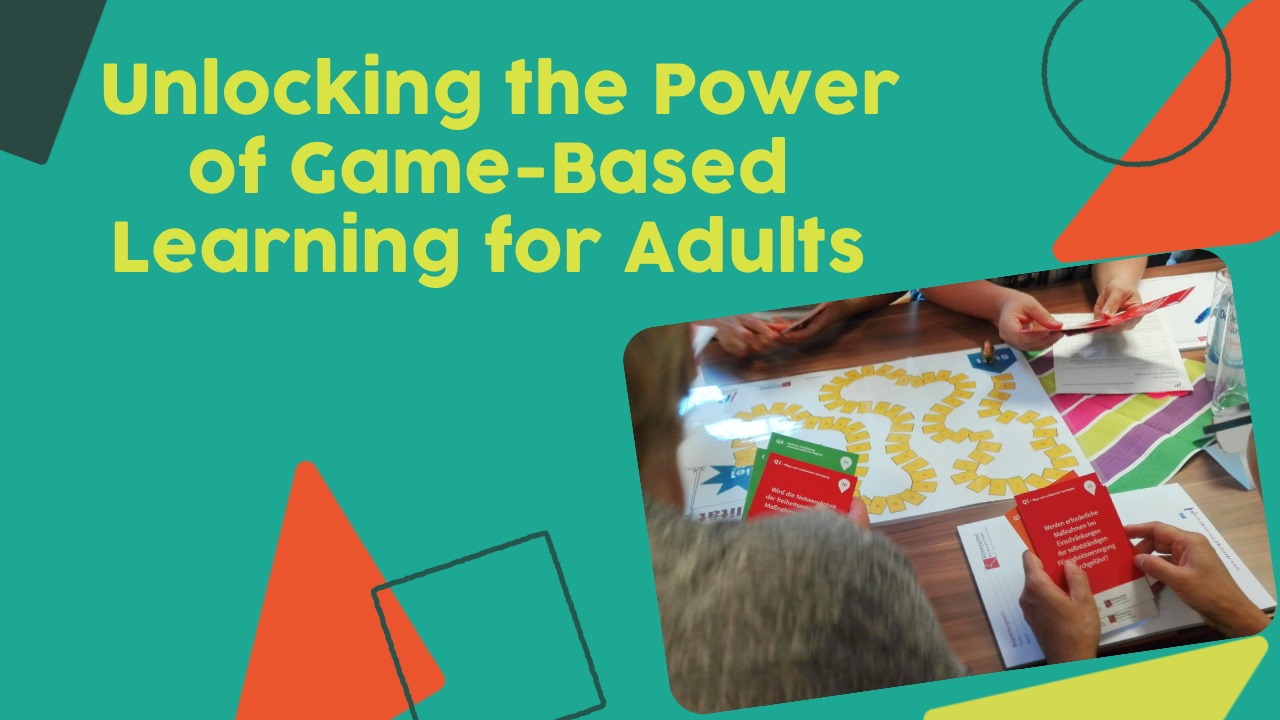
Game-Based Learning: Not Just Child’s Play
Think games are just for kids? Think again! Game-based learning (GBL) is revolutionizing adult education, turning lessons into interactive, engaging experiences that stick. It’s not just fun—it’s scientifically proven to boost cognitive performance, motivation, and learning outcomes. Whether you’re leveling up your skills for work or exploring new fields, GBL is the secret weapon to supercharge learning and development.
The Science Behind Game-Based Learning
Studies confirm what many have already discovered: GBL isn’t just hype—it delivers results. Games fuel learning by tapping into active participation and intrinsic motivation. Why? Because rewards, challenges, and feedback systems keep learners hooked and hungry for progress.
Clark, Tanner-Smith, and Killingsworth (2016) reported in the Review of Educational Research that digital games improve learning outcomes across various subjects, with an effect size of 0,34. In other words, learners using GBL outperform those using traditional methods by a significant margin.
Similarly, Connolly, Boyle, MacArthur, Hainey, and Boyle (2012) analyzed 129 studies in Computers & Education and found clear evidence of improved knowledge acquisition, problem-solving skills, and motivation. This isn’t just learning—it’s learning that sticks.
Supercharging Cognitive and Emotional Skills
Game-based learning doesn’t just teach facts; it sharpens brains. Studies highlight gains in critical thinking, memory retention, and emotional engagement. By immersing learners in scenarios that demand decision-making and strategy, games provide a safe space to experiment and grow.
For example, Graafland, Schraagen, and Schijven (2012) demonstrated in Surgical Endoscopy how virtual reality simulations improve surgical skills and performance under pressure. The results? Faster decisions, better precision, and enhanced confidence—all thanks to serious games.
Real-World Applications for Adults
GBL isn’t just about fun and games; it’s about practical results. From corporate training to professional certifications, game-based learning transforms traditional methods into dynamic, skills-driven experiences.
In the workplace, leadership simulations and management games help develop essential soft skills like communication, collaboration, and strategic thinking. Sitzmann (2011) found in Personnel Psychology that trainees using GBL experienced 11% higher knowledge gains, 14% better retention, and 9% better performance than those relying on conventional approaches. That’s serious ROI for serious learning.
Engaging, Motivating, Unforgettable
Engagement is the name of the game—and GBL wins big. Interactive design and immediate feedback capture attention and keep learners locked in. Hamari, Koivisto, and Sarsa (2014) concluded in Internet Research that gamified elements significantly boost user engagement, leading to deeper understanding and long-term retention. Why settle for passive learning when you can play, explore, and grow?
The Future of Adult Learning is Here
Game-based learning is more than a trend; it’s a game-changer. Backed by science, GBL enhances cognition, builds confidence, and transforms learning into an adventure. As workplaces evolve and continuous learning becomes a must, GBL offers adults a fun, flexible, and highly effective way to stay ahead.
Ready to level up your skills? Dive into the world of game-based learning and discover how play can unlock your potential.
References
– Clark, D. B., Tanner-Smith, E. E., & Killingsworth, S. S. (2016). Digital Games, Design, and Learning: A Systematic Review and Meta-Analysis. *Review of Educational Research*, 86(1), 79-122.
– Connolly, T. M., Boyle, E. A., MacArthur, E., Hainey, T., & Boyle, J. M. (2012). A systematic literature review of empirical evidence on computer games and serious games. *Computers & Education*, 59(2), 661-686.
– Graafland, M., Schraagen, J. M., & Schijven, M. P. (2012). Systematic review of serious games for medical education and surgical skills training. *Surgical Endoscopy*, 26(5), 1424-1433.
– Sitzmann, T. (2011). A meta-analytic examination of the instructional effectiveness of computer-based simulation games. *Personnel Psychology*, 64(2), 489-528.
– Hamari, J., Koivisto, J., & Sarsa, H. (2014). Does Gamification Work? – A Literature Review of Empirical Studies on Gamification. *Hawaii International Conference on System Sciences*, 3025-3034.
